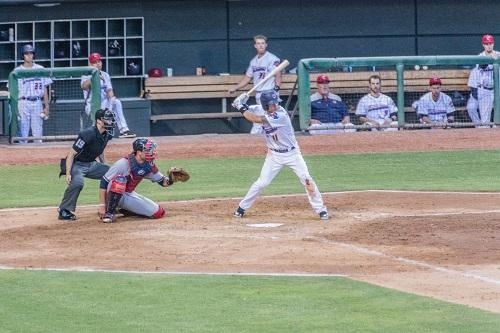

Following the cancellation of the 2020 Minor League Baseball season because of the coronavirus pandemic, questions about many teams’ futures emerged — especially with the impending expiration of the governing agreement between MiLB and Major League Baseball. That contract, involving 160 minor league teams affiliated with Major League clubs, quietly expired Sept. 30.
Then, on Oct. 7, MLB officials announced plansto take over operations of MiLB and oversee them out of MLB’s New York City headquarters. Peter B. Freund (who owns minor league teams at three levels) and Trinity Sports Consultants were hired to work with MLB’s Office of the Commissioner “to help develop the framework for a more cohesive model for the development of players in all the MLB licensed markets around the country,” according to a statement issued by MLB and tweeted by J.J. Cooper, executive editor of Baseball America.
“Starting in the 2021 season, MLB will begin implementing a modern approach to player development that includes significant enhancement to the Minor League experience for fans, teams, players and communities such as renovated facilities, reduced travel burdens for teams and improved daily working conditions for the players,” the statement continued. Salary increases for Minor League players also are expected.
That said, at least 40 MiLB teams are on the chopping block next year after MLB officials previously announced reducing the number of affiliated clubs. That would leave four MiLB affiliates per major league. The elimination of rookie and short-season leagues is likely, too.
“To their credit, MLB has committed to maintaining a baseball presence in every market where Minor League baseball currently has a team,” notes MLBTradeRumors.com. “What exactly that amounts to is difficult to parse on a broad scale, but in many cases it will mean instructional leagues or camps, wooden-bat leagues — potentially for amateur participants — and youth programs. The goal, MLB insists, is not to eliminate those 40 cities who are losing their minor league teams from the baseball community – but to revamp and streamline the broader system to build a more comprehensive, efficient and lucrative development pipeline.”
BallparkDigest.comd oesn’t seem as optimistic, declaring that “it’s the end of Minor League Baseball as we know it” because “[w]hether or not these changes are a good idea or not isn’t really relevant: MLB has all the power and is in the mode of dictating terms to Minor League teams.”
That outlook is unsurprising, considering when the plan was first proposed, it was dubbed the “assault on hometown baseball.”
The contractions have already begun. During the final week of September, the Appalachian League for rookies was converted to a college summer circuit. According to a statement from MLB, the league will become a part of the Prospect Development Pipeline, the collaborative effort between MLB and USA Baseball that establishes a player development pathway for amateur baseball players in the United States. It also will be an integral part of the identification and development process for the USA Baseball Collegiate National Team and other future national teams.
The Associated Press reports that “MLB views the new status of the Appalachian League as following through on its commitment to preserve baseball in the cities losing affiliated minor league teams. MLB said it consulted with top college coaches in the change.” Many teams from the Pioneer League and the New York-Penn League are likely to become part of college summer leagues, too, according to the AP.
MLB also has made the independent Atlantic League of Professional Baseball its first “partner league,” reports FrontOfficeSports.com. “MLB has previously used the ALPB to test new rules and technology it was looking to introduce at the major league level, and the new partnership expands that agreement and extends it through 2023, according to an announcement on Sept. 23,” the website notes.
Meanwhile, a cloud of uncertainty hovers over MiLB franchises all over the country.
“Everybody would like to be in a position to begin planning for 2021, but right now nobody is in a spot to do that,” Ted Tornow, general manager of the Clinton (Iowa) LumberKings, a Class A affiliate of the Miami Marlins, told the Quad-City Times. “There is no schedule to build around, no real guarantee about anything other than that negotiations are taking place and we all have to wait to see where it leads.”
Still, officials at some Minor League ballparks are firming up at least some plans to keep venues in use. Nitro Circus — an extravaganza featuring elite athletes in freestyle motocross, BMX, skateboarding and scooters — is expected to fly into 26 venues beginning in Spring 2021 and lasting into August. The events will take place in partnership with stadium concert producer Indigo Road Entertainment.
“Our paths crossed multiple times between the concerts they were putting on on a regular basis and some of the fairs and festivals we kept approaching,” Brian Bouquet, executive vice president of touring and consumer marketing for Nitro Circus’ parent company, Thrill One Sports & Entertainment, told VenuesNow.com.“We have one of the largest action sports content catalogs in the world, and we’ve been able to transition from touring to being a content provider and have had huge success with ESPN and major networks across the world. But the bottom line is, we still love touring. We like bringing live entertainment to people, and we had to find a way to do that successfully next year.”
Bouquet adds that he hopes each Nitro Circus stop will attract between 7,500 and 11,000 fans.

